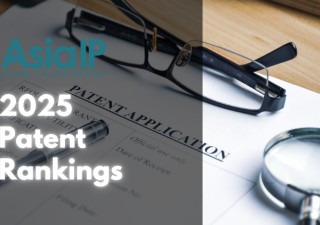On December 3 last year, the Legislative Affairs Office of China’s State Council released the newest draft amendments to the Patent Law of the People’s Republic of China while soliciting public comments.
Zheng Xia, president and patent attorney at AFD China Intellectual Property Law Office in Beijing, says patent examination and prosecution in China is more mature than enforcement. “We are happy to see in this time’s amendments many aspects of enforcement have been introduced, normalized, reinforced and improved,” he says.
According to DLA Piper in Shanghai, some clauses – such as treble damages – will certainly enhance patent protection in China, while the effect of or controversy over some other clauses are worth monitoring in subsequent legislation as well as in future judicial development.
Wang Xiaobing, a partner at Lungtin Law Firm in Shanghai, says the biggest changes are seen in the rules of infringing compensation, under which the compensation for willful infringing cases is increased and the upper limit on statutory damages increases from Rmb1 million to Rmb5 million (US$152,000 to US$761,000). Also under the new rules, an infringer will be asked by the court to provide proper evidence that is relevant to the cases, and the judge may accordingly make decisions that are unfavorable to the infringer if such evidence is hidden or faked.
Wang says the changes further increase protection for IP owners, encourage patentees to use the technology into application; and balance the benefits between IP owners and the public.
Wang believes the change will impact patentees in the following ways: 1) patentees are encouraged to innovate and create more revenue for themselves or their employers; 2) patentees will focus on the quality of their applications; 3) when patentees seek legal protection for their inventions, the time and cost involved may be decreased in order to combat infringement; and 4) put certain limits on the application of patents so that patentees would not abuse their rights.
Although the changes are remarkably obvious, challenges still remain. “At the present stage, patentees do not know comprehensively enough about the patent rules, so their experiences of IP protection are not rich, which needs to be improved. The quality of patent applications is not high enough, which makes the whole patent technology relatively unstable,” Wang says.
Zheng says that patent owners should adjust their operations to accommodate new ideas and practice. “Aside from the adjustments, they will face more challenges from their own side, finding answers to questions like what they should and could do to seek protection for their inventions and designs, improve the quality of their patents, conduct effective management over their innovations and patent portfolio, and make good strategies for patent defense and/or enforcement,” he adds.
Besides, as many foreign companies eye China’s huge consumer market, it will probably be a new challenge for Chinese patentees to decide how to seek their proper rights, says Wang.
Patent litigation still needs to be improved, says Zheng, since difficulties will likely occur in actual cases. “With the country’s focus being laid onto IP protection in the past decade, many plans, guides and measures of national, regional and industrial levels have been implemented to help foster a better environment,” he says. “Also, with the establishment of specialized IP courts, the research center for IP judicial protection at the Supreme People’s Court, the improvement of laws and regulations, and other dedicated efforts of the court system of different levels and the whole society, we do hope that there is a bright future.”







